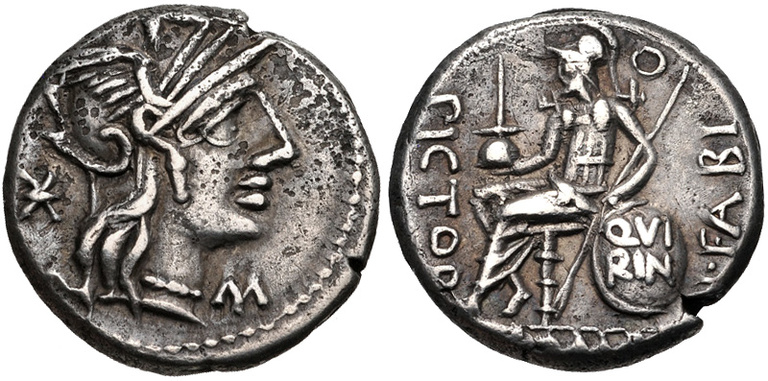
Many scholars believe the name Quirinius is a direct reference to the early Roman deity Quirinius. The name served as an epithet of the deity Janus in Augustan Rome (Janus Quirinius), and appears as a surname to Hercules (Hercules Quirinus). The name Quirinus likely stems from the Latin word quirīs, which refers to Roman citizens in their civil capacity. It may also be a reference to a "spear" or to the residents of the Sabine town "Cures," both as the poet Ovid suggests in his poem Fasti ("The Festivals" 2.477–480).
Others have suggested that Quirinius is a demonym meaning "of Cyrene," the Roman senatorial province known as Creta et Cyrenaica (Crete and Cyrenaica) in Latin. The name Cyrenaica, in turn, is derived from the Greek word Κυρήνη (Kyrēnē), the name of the North African city of Cyrene in modern Libya. At the root of Κυρήνη is the Greek word κύριος (kyrios), meaning "lord, master." According to the Greek poet Pindar, the city of Cyrene was founded by the Greek god Apollo and named after his lover, Cyrene, whom he made, "sovereign queen."
The name (Publius Sulpicius) Quirinius appears in the Bible in Luke 2:2, where he is described as serving as governor of Syria under Caesar Augustus and conducting a census: "This was the first registration and was taken while Quirinius was governor of Syria."